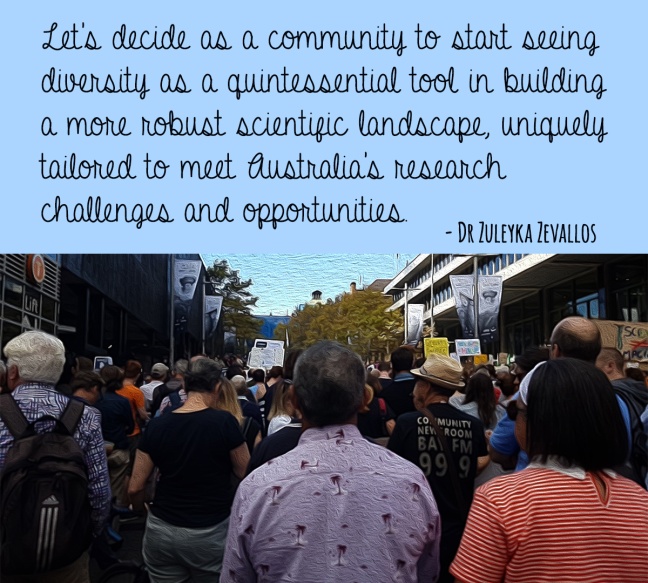This article was first published on Women’s Policy Action Tank on 24 April 2017.
Despite its special focus on diversity, the evolution of the March for Science shows that diversity has been an afterthought. Science and academia continually places scientists from underrepresented groups in the position of arguing for our rights. The issues for the global March for Science, as well as the national marches in Australia, are fundamental to issues of diversity in STEM around the world. The march is a microcosm of the battle to create a more inclusive culture in STEM that truly values and promotes diversity.
Over the weekend, thousands participated in the March for Science, both in Australia and globally. Influenced by the Women’s March, the March for Science has struggled with reflecting the highly diverse scientific community. In today’s post, sociologist Zuleyka Zevallos provides a brief history of the controversies, explains why diversity in science is important, and provides practical suggestions for moving forward on stronger footing.
Diversity is a quintessential tool in scienceContinue reading Publication: Making the Most of Diversity Lessons


